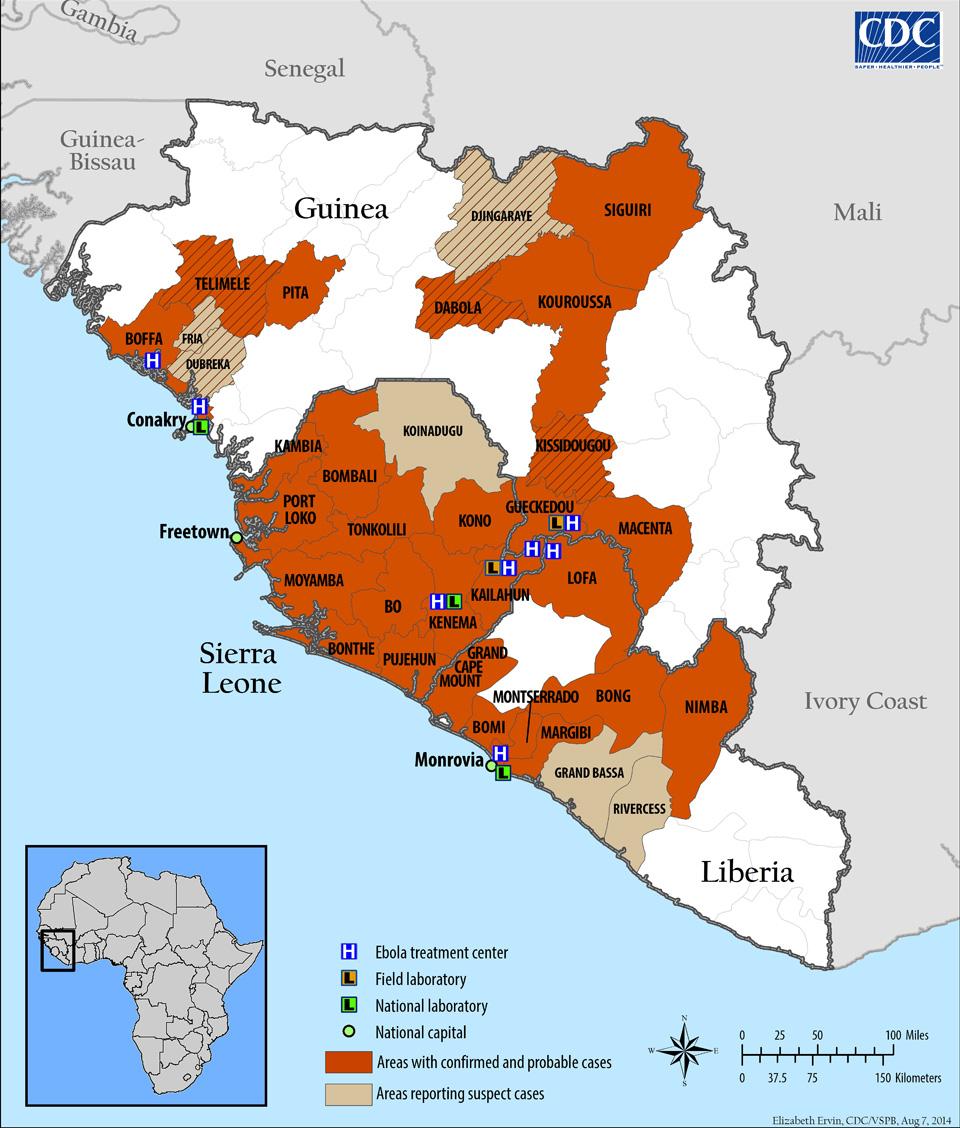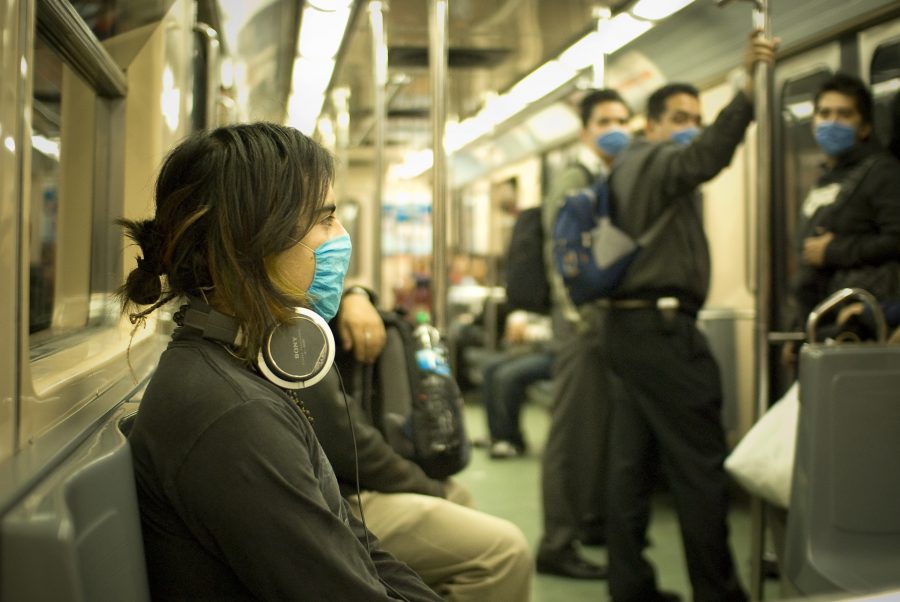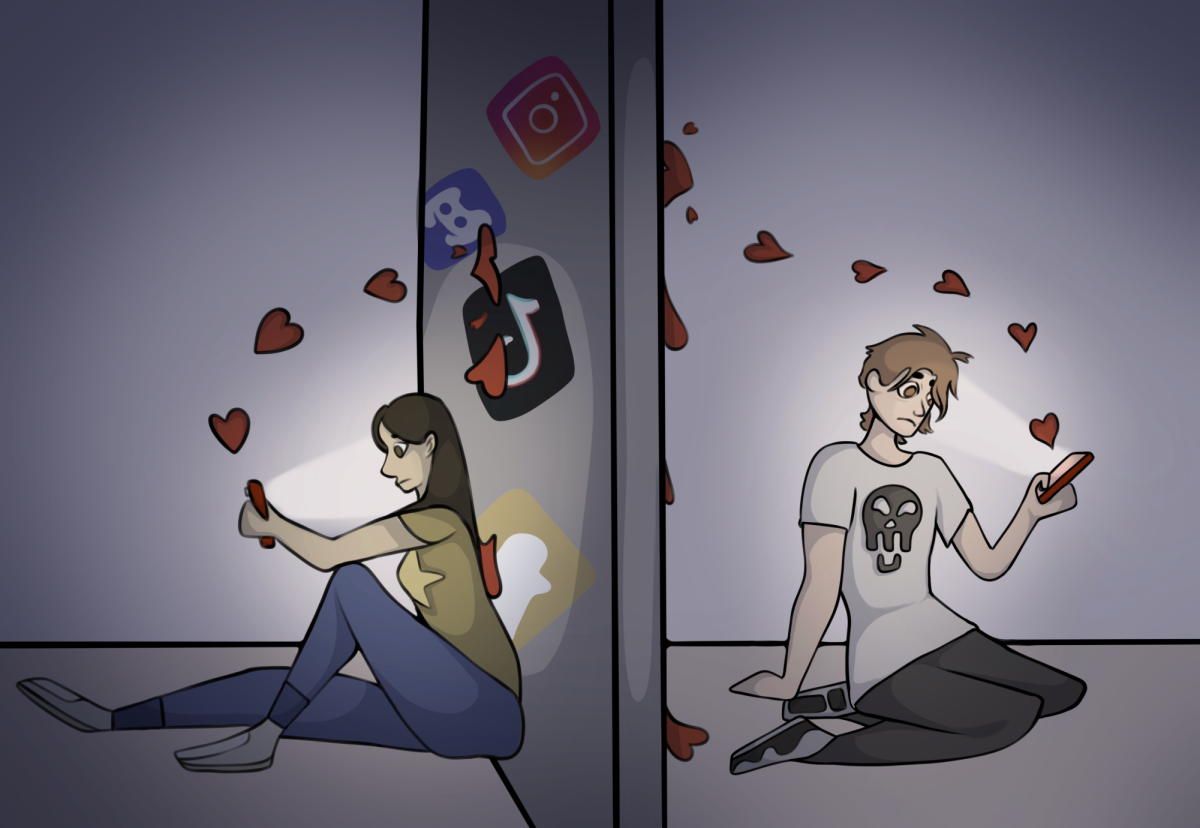Chances are, you’ve probably heard people joking about being stricken with Ebola. Some people aren’t even joking—they’re actually worried they’ll get the virus that many think has been “spreading” across the U.S. since the first American was diagnosed with Ebola on Sept. 20. Since then, the disease has spread to a grand total of four people in the U.S.
Meanwhile, on the African continent, there are three major countries that have suffered thousands of losses. Guinea, Sierra Leone and Liberia have had a total of 13,540 cases, with a mortality rate of 71 percent. People are suffering from this disease in these countries—so why are we all so focused on the U.S.?

Before the so-called outbreak of Ebola in the U.S., very few people were aware of the situation in Africa. Although awareness of sickness in Africa has increased as a result of Ebola in the U.S., it’s not acceptable that so few people were actually aware of the crisis happening with the same disease elsewhere.
Mass panic over an issue is something that has been occuring for many years in the U.S., along with other developed countries. The swine flu and SARS are also epidemics that were portrayed by the media in the same way—although the U.S. experienced a few scattered cases, countries around the world had death tolls that reached the thousands.
“I find it highly ironic that we only focus on Ebola…the minute it reaches our soil, but we didn’t focus on it when it was plaguing nations in Africa,” sophomore Fatima Shahbaz said.One reason for this disconnect is because of the media. Popular media and news often choose to focus on entertaining or shocking articles, rather than articles that actually report news from around the world.
“There is far too much subjectivity and superficiality,” said John Behm, who teaches English and film studies.
Media today feels forced to keep audiences interested by using fear factors and shock tactics. Their content needs to conform to what they believe their audience—namely, the public—will be interested in.
“It takes drama and disaster to get into the news cycle,” Behm said.
The media is not completely to blame, however. Many people are simply not interested in events happening around the world.
“Students do not focus enough on issues outside of first world countries,” Shahbaz said. “We don’t look beyond our little bubble.”
Global awareness is something that should be a given in today’s society. We’re in an age where all we have to do is click a button to hear about the world around us.
“I feel like the more we can broaden the spectrum of our world the more we can understand our peers and other individuals,” Shahbaz said.
We are able to access information about other places around the world easily. Therefore, there is no excuse for not being globally aware of the world and people around us.









